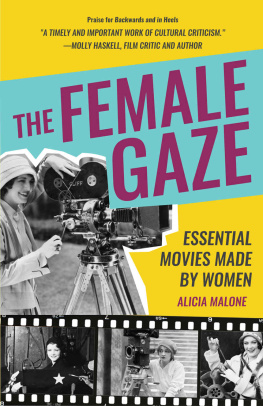The Female Man
Joanna Russ
CONTENTS
This book is dedicated to Anne, to Mary and to
the other one and three-quarters billions of us.
THE FEMALE MAN
Proofread and formatted for #bookz September 2002
A Bantam Book / February 1973
The epigraph on page v excerpted from THE POLITICS OF EXPERIENCE copyright1967by R. D. Laing
All rights reserved.
Copyright 1975 by Joanna Russ.
This book may not be reproduced in wholeor in part, by mimeograph or any other means, without permission.
For information address; Bantam Books, Inc.
Published simultaneously in the United States and Canada
Bantam Books are published by Bantam Books, Inc. Its trademark,consisting of the words "Bantam Books" and the portrayal of a bantam, isregistered in the United States Patent Office and in other countries. MarcaRegistrada. Bantam Books, Inc., 666 Fifth Avenue, New York, New York 10019.
PRINTED IN THE UNITED STATES OF AMERICA
If Jack succeeds in forgetting something, this is of little use if Jillcontinues to remind him of it. He must induce her not to do so. The safestway would be not just to make her keep quiet about it, but to induce herto forget it also.
Jack may act upon Jill in many ways. He may make her feel guilty for keepingon "bringing it up." He may invalidate her experience. This canbe done more or less radically. He can indicate merely that it is unimportantor trivial, whereas it is important and significant to her. Going further,he can shift the modality of her experience from memory to imagination:"It's all in your imagination." Further still, he can invalidate the content: "It never happened that way." Finally, he can invalidate notonly the significance, modality, and content, but her very capacity to rememberat all, and make her feel guilty for doing so into the bargain.
This is not unusual. People are doing such things to each other all thetime. In order for such transpersonal invalidation to work, however, it isadvisable to overlay it with a thick patina of mystification. For instance,by denying that this is what one is doing, and further invalidating any perceptionthat it is being done by ascriptions such as "How can you think such a thing?""You must be paranoid." And so on.
R. D. Laing, The Politics of Experience, Penguin Books, Ltd.,London, 1967, pp. 31-32.
PART ONE
I
I was born on a farm on Whileaway. When I was five I was sent to a schoolon South Continent (like everybody else) and when I turned twelve I rejoinedmy family. My mother's name was Eva, my other mother's name Alicia; I amJanet Evason. When I was thirteen I stalked and killed a wolf, alone, onNorth Continent above the forty-eighth parallel, using only a rifle. I madea travois for the head and paws, then abandoned the head, and finally gothome with one paw, proof enough (I thought). I've worked in the mines, onthe radio network, on a milk farm, a vegetable farm, and for six weeks asa librarian after I broke my leg. At thirty I bore Yuriko Janetson; whenshe was taken away to a school five years later (and I never saw a childprotest so much) I decided to take time off and see if I could find my family'sold homefor they had moved away after I had married and relocated near MineCity in South Continent. The place was unrecognizable, however; our ruralareas are always changing. I could find nothing but the tripods of the computerbeacons everywhere, some strange crops in the fields that I had never seenbefore, and a band of wandering children. They were heading North to visitthe polar station and offered to lend me a sleeping bag for the night, butI declined and stayed with the resident family; in the morning I startedhome. Since then I have been Safety Officer for the county, that is S &P (Safety and Peace), a position I have held now for six years. My Stanford-Binetcorrected score (in your terms) is 187, my wife's 205 and my daughter's 193.Yuki goes through the ceiling on the verbal test. I've supervised the diggingof fire trails, delivered babies, fixed machinery, and milked more moo-cowsthan I wish I knew existed. But Yuki is crazy about ice-cream. I love mydaughter. I love my family (there are nineteen of us). I love my wife (Vittoria).I've fought four duels. I've killed four times.
II
Jeannine Dadier (DADE-yer) worked as a librarian in New York City threedays a week for the W.P.A. She worked at the Tompkins Square Branch in theYoung Adult section. She wondered sometimes if it was so lucky that HerrShicklgruber had died in 1936 (the library had books about this). On thethird Monday in March of 1969 she saw the first headlines about Janet Evasonbut paid no attention to them; she spent the day stamping Out books for theYoung Adults and checking the lines around her eyes in her pocket mirror(I'm only twenty-nine!). Twice she had had to tuck her skirt aboveher knees and climb the ladder to the higher-up books; once she had to movethe ladder over Mrs. Allison and the new gentleman assistant, who were standingbelow soberly discussing the possibility of war with Japan. There was anarticle in The Saturday Evening Post .
"I don't believe it," said Jeannine Nancy Dadier softly. Mrs. Allisonwas a Negro. It was an unusually warm, hazy day with a little green showingin the park: imaginary green, perhaps, as if the world had taken an odd turningand were bowling down Spring in a dim bye-street somewhere, clouds of imaginationaround the trees.
"I don't believe it," repeated Jeannine Dadier, not knowing what theywere talking about. "You'd better believe it!" said Mrs. Allison sharply.Jeannine balanced on one foot. (Nice girls don't do that.) She climbed downthe ladder with her books and put them on the reserve table. Mrs. Allisondidn't like W.P.A. girls. Jeannine saw the headlines again, on Mrs. Allison'snewspaper.
WOMAN APPEARS FROM NOWHERE ON BROADWAY, POLICEMAN VANISHES
"I don't" (I have my cat, I have my room, I have my hot plate andmy window and the ailanthus tree).
Out of the corner of her eye she saw Cal outside in the street; he waswalking bouncily and his hat was tipped forward; he was going to have somesilly thing or other to say about being a reporter, little blond hatchetface and serious blue eyes; "I'll make it some day, baby." Jeannine slippedinto the stacks, hiding behind Mrs. Allison's P.M.-Post : WomanAppears from Nowhere on Broadway, Policeman Vanishes. She daydreamed aboutbuying fruit at the free market, though her hands always sweat so when shebought things outside the government store and she couldn't bargain. Shewould get cat food and feed Mr. Frosty the first thing she got to her room;he ate out of an old china saucer. Jeannine imagined Mr. Frosty rubbing againsther legs, his tail waving. Mr. Frosty was marked black-and-white all over.With her eyes closed, Jeannine saw him jump up on the mantelpiece and walkamong her things: her sea shells and miniatures. "No, no, no!" shesaid. The cat jumped off, knocking over one of her Japanese dolls. Afterdinner Jeannine took him out; then she washed the dishes and tried to mendsome of her old clothing. She'd go over the ration books. When it got darkshe'd turn on the radio for the evening program or she'd read, maybe callup from the drugstore and find out about the boarding house in New Jersey.She might call her brother. She would certainly plant the orange seeds andwater them. She thought of Mr. Frosty stalking a bath-robe tail among theminiature orange trees; he'd look like a tiger. If she could get empty cansat the government store.
"Hey, baby?" It was a horrid shock. It was Cal.
"No," said Jeannine hastily. "I haven't got time."










